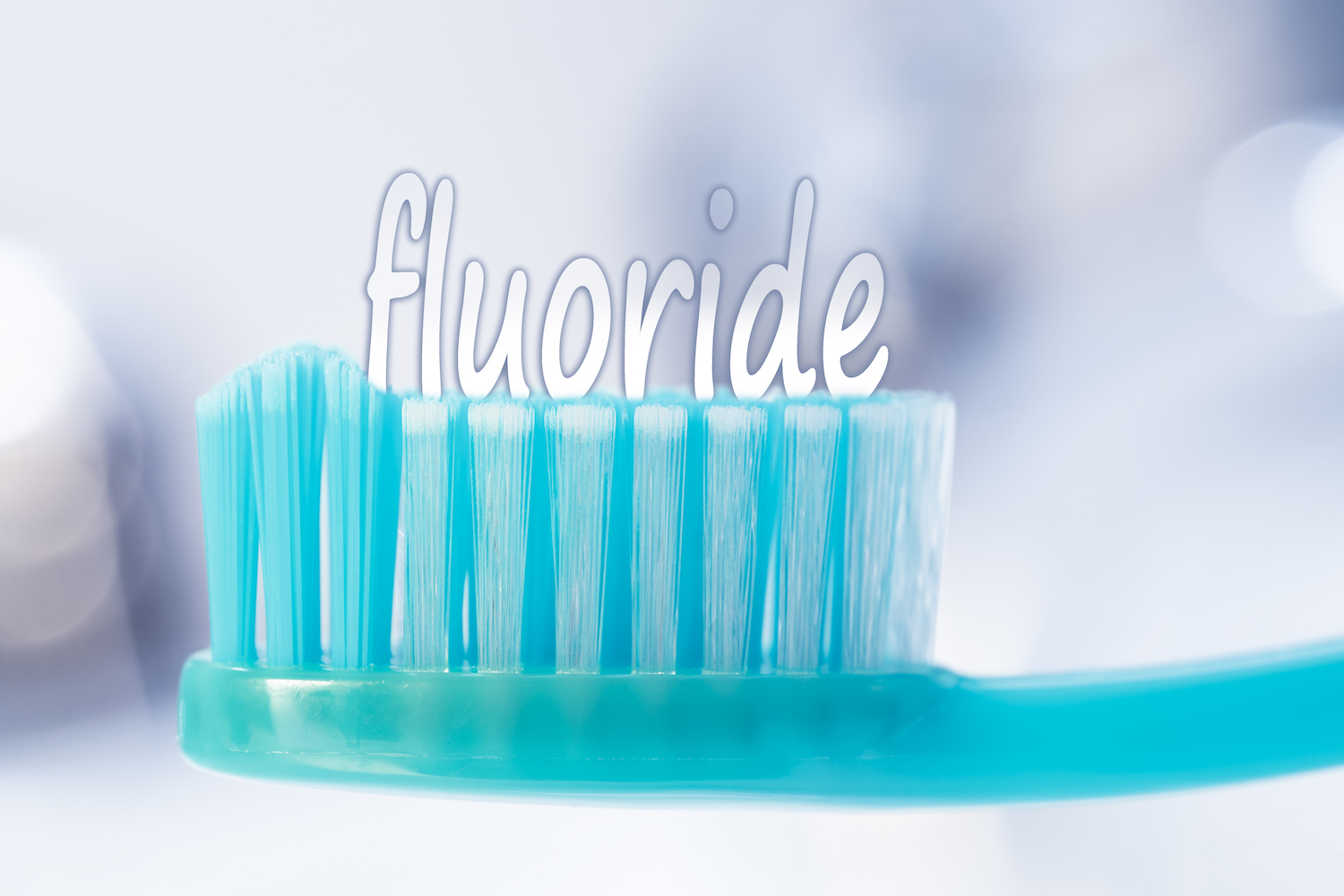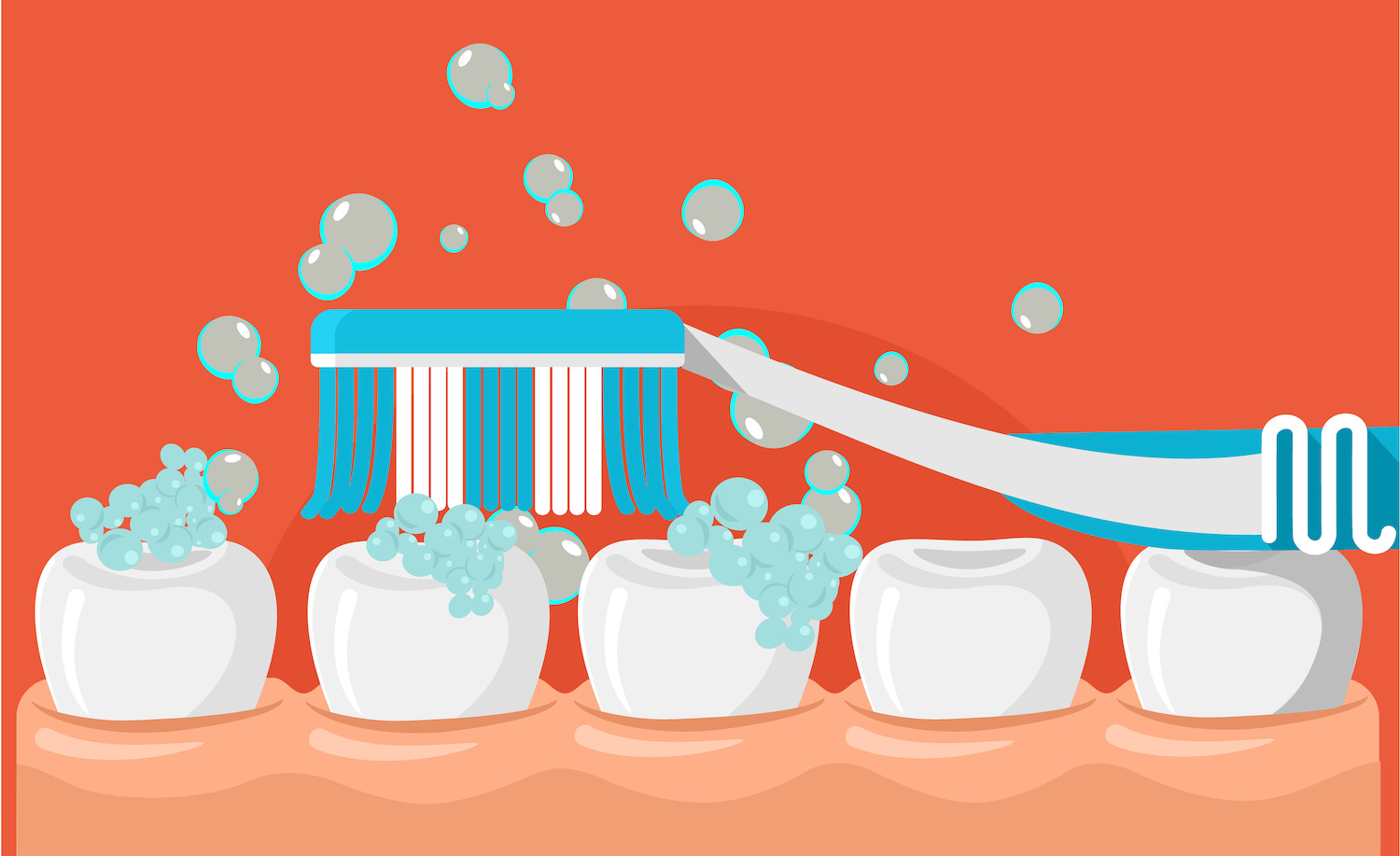Is Fluoride Toxic? Fluoride is a Neurotoxin That Affects the Brain
In 1945, fluoride was first added to drinking water. Not long after, in 1956, consumer
goods producer Proctor and Gamble created the first toothpaste containing fluoride. Ever since, health officials
the world over have preached the benefits of fluoride - especially with respect to oral health and its supposed
ability to prevent tooth decay
- and fluoridated water and toothpaste have become a mainstay of civilisation.
How is Fluoride Toxic?
But there’s a problem. Not only does fluoride not stop tooth decay, it’s also toxic and seriously harmful to health. Some of the key mechanisms by which fluoride is toxic are:
Formation of Fluoride Ions
When fluoride is ingested, it dissolves into fluoride ions (F-) in the body. These ions are highly reactive and can interact with and displace essential molecules.
Mineralisation Disruption
Excessive fluoride can interfere with the mineralisation process of teeth and bones. It leads to replacing hydroxyapatite crystals in tooth enamel and bone with fluorapatite, which alters their structure and ultimately weakens them.
Enzyme Inhibition
Fluoride can inhibit several enzymes in the body, including enzymes involved in energy production, neurotransmitter synthesis and antioxidant defence mechanisms. This leads to cellular dysfunction.
Collagen Synthesis Interference
High fluoride levels can disrupt collagen synthesis - affecting the strength and flexibility of connective tissues, bones, and teeth.
Oxidative Stress
Fluoride can promote the production of reactive oxygen species, leading to oxidative stress, which damages cells and tissues.
Disruption of Cellular Signalling
Fluoride can interfere with cell signalling pathways - affecting various cellular processes
and functions.

Disrupting Endocrine Function
Fluoride can interfere with the function of the endocrine system, potentially affecting hormone production, secretion, and regulation. Specifically, fluoride is thought to accumulate in and affect the pituitary gland - one of the most important parts of the brain that regulates many of the other endocrine glands.
Acts as a Neurotoxin
Fluoride is a neurotoxin - a toxic compound that specifically targets and affects neurones, causing neurological disorders and impairments. Studies show that fluoride can cross the blood-brain barrier and accumulate in the brain, leading to neurotoxic effects and impacting cognitive function - even causing IQ loss.
DNA Damage
Excessive fluoride exposure has been linked to DNA damage, potentially increasing the risk of genetic mutations.
Hindering Immune Function
Fluoride can trigger immune responses - altering immune function and causing inflammation.
Gastrointestinal Irritation
Ingesting high amounts of fluoride (via water or toothpaste) can irritate the gastrointestinal tract - causing bloating, nausea, vomiting, abdominal pain, and diarrhoea.
Disruption of Calcium Homeostasis
Fluoride ions have a high affinity for calcium ions, so when fluoride ions enter the body and accumulate in tissues, they can displace calcium ions - affecting various physiological processes that rely on proper calcium levels.

Why Fluoride Doesn’t Stop Tooth Decay
It is not the absence of fluoride that causes tooth decay, but rather the presence of sugar. We regularly treat people who drink fluoridated water and use fluoridated toothpaste yet still suffer from tooth decay...

Fluoride Free Hydrogen Peroxide Toothpaste
Hydrogen peroxide toothpaste effectively kills harmful anaerobic bacteria in the mouth. Its oxygenating properties also aid the healing of oral tissues (like the gums). It is a healthier, more effective alternative to fluoridated toothpaste...
The Side Effects of Fluoride Toxicity
These side effects of fluoride toxicity manifest in a host of conditions and symptoms. For a more detailed understanding of the specific conditions that arise because of fluoride toxicity, read our earlier article that outlines some of the dangers of fluoride.
Is Fluoride a Neurotoxin?
Yes, fluoride is a neurotoxin. Of all the ways in which fluoride toxicity affects the body, its effects on the brain are particularly nasty. Fluoride’s side effects on the brain are highlighted particularly well in a study conducted by the National Toxicology Program (NTP) in America, which found that children exposed to fluoride in drinking water at levels that are currently considered safe (0.7 mg/L) had lower IQ scores than children not exposed to fluoride.
Let that sink in; such are the neurotoxic effects of fluoride that it lowers IQ, alters brain chemistry and impairs cognitive function. The report ultimately concluded that because of this, there is no safe level of fluoride in drinking water.
How Fluoride Acts as a Neurotoxin and How it Affects the Brain
So, how exactly does fluoride cause IQ loss and affect the brain? Ultimately, it’s because fluoride causes the following disturbances.

Fluoride Causes Ion Interference
Fluoride ions have a high affinity for calcium ions, which are crucial for neuron function. When fluoride ions enter the body & accumulate in tissues, they can displace calcium ions.
Fluoride Inhibits Enzymes
Fluoride can inhibit enzymes, like those involved in neurotransmitter synthesis, energy production, & antioxidant defence mechanisms - ultimately disrupting biochemical pathways required for proper neuronal function.
Fluoride Causes Oxidative Stress
Fluoride induces oxidative stress in the brain. This occurs when there is an imbalance between harmful free radicals & antioxidants. Oxidative stress damages neurons & leads to neurotoxic effects.
Fluoride Causes Inflammation
Studies suggest that fluoride exposure can trigger inflammatory responses in the brain. Chronic neuroinflammation has been linked to various neurodegenerative disorders and cognitive decline/impairment.
Fluoride Disrupts Neurotransmission
Fluoride can interfere with the release, uptake, & binding of neurotransmitters, which are essential for transmitting signals between neurons - affecting cognitive & behavioural functions.
How to Avoid Fluoride Toxicity and Protect Your Brain?
In short, the best way to protect yourself from fluoride toxicity is to undertake the following steps:
Stop Drinking Fluoridated Water
If you live in an area where tap water is fluoridated, the best solution is to purchase a water filter - always make sure to change the filter regularly.
Stop Using Fluoridated Toothpaste and Mouthwash
Many believe swallowing toothpaste is the only way toxins like fluoride can enter the body. They believe that fluoridated toothpaste presents no risk unless it is swallowed. This, however, is not true.
The tissues in the oral mucosa (the cheeks, gums and under the tongue) are highly absorbent. So, fluoride (and other toxins) are absorbed by these tissues simply by being present in the mouth. Upon absorption, they enter the bloodstream and then travel throughout the body.
Click here to discover what fluoride-free, toxin-free toothpastes and oral care products we recommend.
The Toothpaste
The Toothpaste is made with non-toxic, clinically effective ingredients that outperform those found in conventional toothpaste formulas. Free from fluoride, SLS, and artificial additives, it uses hydroxyapatite to remineralise enamel and strengthen the teeth.
.
The Brushing Solution
The Brushing solution is a natural liquid rinse formulated from a blend of
hydrogen peroxide, oil of cloves, peppermint and organic aloe vera, and has been specifically formulated to improve
oral hygiene by
restoring optimal pH and microbe balance in the mouth.
.
Opt For a Fluoride Free Dental Clinic
Most dentists use fluoride (not to mention other toxins) in their practice. However, there are a growing number of holistic
and biological dentists
who offer toxin free dentistry. We have provided toxin and fluoride free dentistry services since our inception
over 30 years ago.

